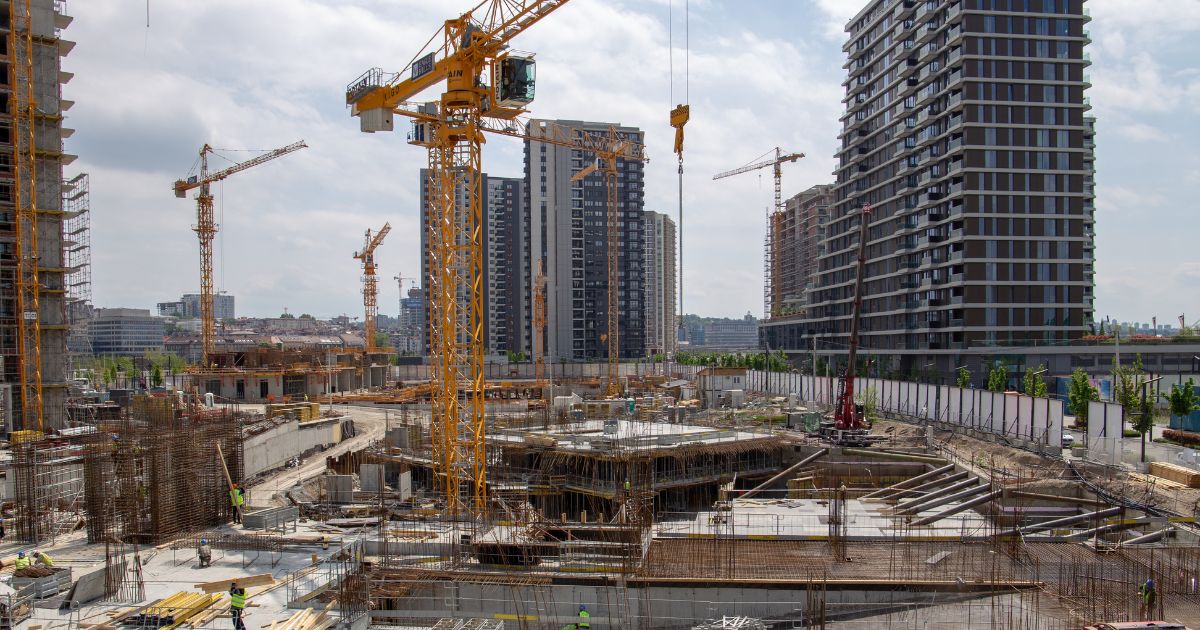The construction market encompasses the planning, development, execution, and management of projects involving the creation, renovation, or modification of structures, infrastructure, and facilities. From residential homes to commercial buildings, roads, bridges, and industrial facilities, the construction industry plays a pivotal role in shaping the built environment and driving economic growth worldwide. The construction market is influenced by factors such as economic conditions, government policies, technological advancements, environmental considerations, and societal needs.
Overview:
The construction market encompasses a wide range of activities and sectors, including:
- Residential Construction: Involves the construction of single-family homes, multi-family dwellings, condominiums, and apartment complexes. Residential construction projects may include new construction, renovation, remodeling, and home improvement activities.
- Commercial Construction: Encompasses the construction of commercial buildings, office complexes, retail centers, hotels, restaurants, and entertainment venues. Commercial construction projects serve businesses, institutions, and organizations seeking to create functional and aesthetically appealing spaces for their operations.
- Infrastructure Construction: Involves the construction of public infrastructure, including roads, highways, bridges, tunnels, airports, railways, ports, and utilities. Infrastructure projects support transportation, communication, energy, water, and sanitation systems essential for societal functioning and economic development.
- Industrial Construction: Focuses on the construction of industrial facilities, manufacturing plants, warehouses, distribution centers, and logistics hubs. Industrial construction projects cater to the needs of various industries, including manufacturing, logistics, warehousing, and e-commerce.
- Civil Engineering Projects: Include specialized construction projects such as dams, reservoirs, levees, canals, pipelines, and water treatment facilities. Civil engineering projects address the needs of water resources management, flood control, irrigation, and environmental protection.
Market Dynamics:
The construction market is influenced by a combination of factors that impact demand, supply, and industry trends:
- Economic Conditions: Economic factors such as GDP growth, interest rates, inflation, employment levels, and consumer confidence influence construction activity. Economic expansion typically leads to increased investment in construction projects, while economic downturns may result in project delays or cancellations due to reduced funding and demand.
- Government Policies and Regulations: Government policies, regulations, and incentives shape the construction market by influencing project planning, permitting, financing, and compliance requirements. Government initiatives related to infrastructure investment, urban development, energy efficiency, and sustainability impact the types and scale of construction projects undertaken.
- Technological Advancements: Technological innovations such as Building Information Modeling (BIM), prefabrication, modular construction, robotics, drones, and advanced materials enhance productivity, efficiency, and safety in the construction industry. Adoption of digital tools and construction technologies improves project planning, design coordination, construction management, and quality control processes.
- Environmental Considerations: Growing awareness of environmental sustainability, climate change, and resource conservation drives demand for green building practices, energy-efficient designs, and sustainable construction materials. Green building certifications, such as LEED (Leadership in Energy and Environmental Design), promote environmentally responsible construction practices and reduce the environmental impact of buildings and infrastructure.
- Market Competition: The construction market is characterized by intense competition among contractors, developers, architects, engineers, suppliers, and subcontractors. Market competition influences pricing, project delivery schedules, quality standards, and innovation in construction methods and materials.
Key Players:
The construction market comprises a diverse array of participants involved in project development, construction, and management. Key players in the construction industry include:
- General Contractors: General contractors oversee construction projects, coordinating activities, managing subcontractors, and ensuring project completion within budget and schedule. General contractors may specialize in residential, commercial, industrial, or civil construction projects.
- Real Estate Developers: Real estate developers initiate and finance construction projects, including residential, commercial, and mixed-use developments. Developers acquire land, obtain permits, secure financing, and oversee project design, construction, and marketing to bring projects to fruition.
- Architects and Engineers: Architects design buildings and structures, considering aesthetic, functional, and technical requirements. Engineers provide expertise in structural, mechanical, electrical, and civil engineering disciplines, ensuring design integrity, compliance with regulations, and structural safety.
- Construction Material Suppliers: Suppliers provide construction materials, equipment, tools, and components needed for construction projects. Material suppliers may offer a wide range of products, including concrete, steel, lumber, roofing materials, plumbing fixtures, and electrical supplies.
- Construction Technology Providers: Technology providers offer software solutions, digital tools, and construction technologies to streamline project management, design collaboration, scheduling, cost estimation, and quality control processes. Construction tech innovations improve efficiency, productivity, and decision-making in construction projects.
Future Outlook:
The future of the construction market is influenced by emerging trends and developments, including:
- Smart Cities and Infrastructure: The rise of smart cities and infrastructure initiatives integrates technology, data analytics, and connectivity into urban planning, transportation systems, utilities, and public services. Smart infrastructure projects focus on enhancing efficiency, sustainability, resilience, and quality of life for urban residents.
- Prefabrication and Modular Construction: Prefabrication and modular construction methods involve off-site fabrication of building components and assemblies, which are then transported and assembled on-site. Prefab and modular construction offer advantages such as faster construction timelines, reduced labor costs, improved quality control, and minimized environmental impact.
- Sustainable and Resilient Design: Sustainable construction practices prioritize energy efficiency, renewable energy integration, waste reduction, and environmental stewardship in building design and construction. Resilient design principles address climate resilience, disaster preparedness, and adaptation to changing environmental conditions.
- Digital Transformation: The digital transformation of the construction industry involves the adoption of digital technologies such as BIM, drones, IoT sensors, AI, and cloud computing to improve project collaboration, data management, decision-making, and performance monitoring. Digital tools enhance project efficiency, reduce errors, and enable real-time project insights.
- Workforce Development and Skills Training: Addressing workforce shortages and skills gaps in the construction industry requires investments in education, training, and workforce development programs. Training initiatives focus on upskilling workers, promoting diversity and inclusion, and attracting new talent to the construction trades.




